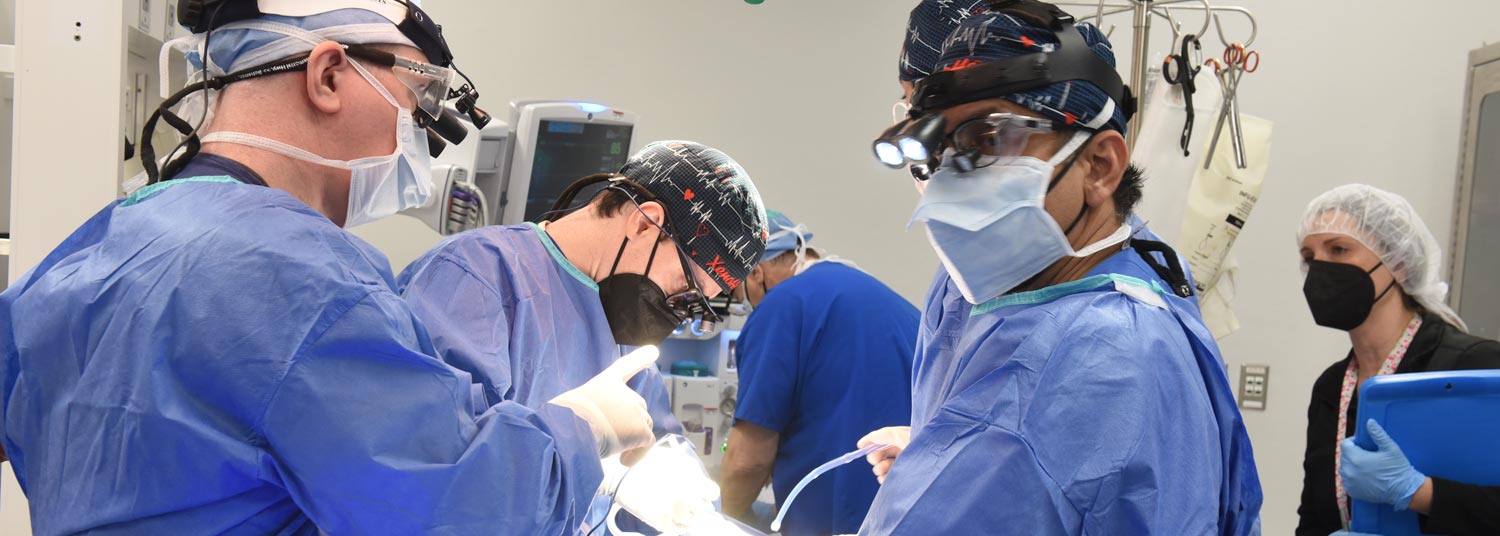December 16, 2022 | Deborah Kotz
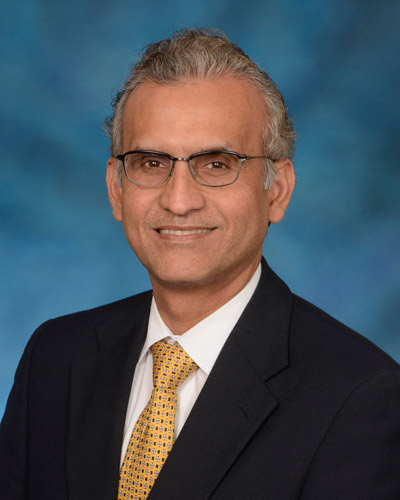 Muhammad Mohiuddin Named for Co-Leading Team that Performed First Genetically-Modified Pig Heart into Human Patient
Muhammad Mohiuddin Named for Co-Leading Team that Performed First Genetically-Modified Pig Heart into Human Patient
The world-renowned journal Nature, named Muhammad Mohiuddin, MD, DSc, Program and Scientific Director of the Cardiac Xenotransplantation Program at the University of Maryland School of Medicine (UMSOM), on its annual list of 10 people who helped shaped science in 2022. His pivotal work over the past three decades transplanting genetically-modified pig hearts into non-human primates led to the historic xenotransplant of a pig heart into a human patient this past January. The surgery was led by Bartley Griffith, MD, the Thomas E. and Alice Marie Hales Distinguished Professor of Transplant Surgery and Clinical Director of the Cardiac Xenotransplantation Program, who was also recognized by Nature for his ground-breaking efforts to move the field of transplantation into a new era.
“In a year full of crises and stunning discoveries, this year’s Nature’s 10 list features an astronomer who helped open a window into the distant reaches of the Universe, researchers who had pivotal roles in confronting the COVID-19 pandemic and the mpox outbreak, and a surgeon who pushed the limits on organ transplantation,” said Rich Monastersky, chief features editor at Nature, in a release announcing the 2022 list. “The stories of the people featured in Nature’s 10 provide unique glimpses into some of the biggest events in science during this extraordinary year.”
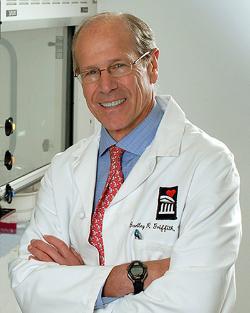 Other top 10 leaders include:
Other top 10 leaders include:
- Astronomer Jane Rigby, PhD, at NASA’s Goddard Space Flight Center in Greenbelt, Maryland, who played a pivotal part in getting the James Webb Space Telescope into space and working, providing vast new capabilities for studying the Universe.
- Saleemul Huq, PhD, director of the International Centre for Climate Change and Development in Dhaka, Bangladesh, who helped win commitments from wealthy nations to pay for losses and damages from climate change during international negotiations last month.
- Genomics researcher Yunlong Cao, PhD, microbiologist at Peking University who has helped track the evolution of the SARS-CoV-2 virus and predicted some of the mutations that are fuelling the rise of new variants.
The historic xenotransplant surgery was conducted on January 7, 2022, by University of Maryland School of Medicine (UMSOM) faculty at the University of Maryland Medical Center (UMMC), together known as the University of Maryland Medicine. The surgery was the only available treatment option for the patient, David Bennett, who did not qualify for a traditional heart transplant and was in end-stage heart failure, nearing the end of his life. The procedure was authorized by the U.S. Food and Drug Administration under its expanded access (compassionate use) provision.
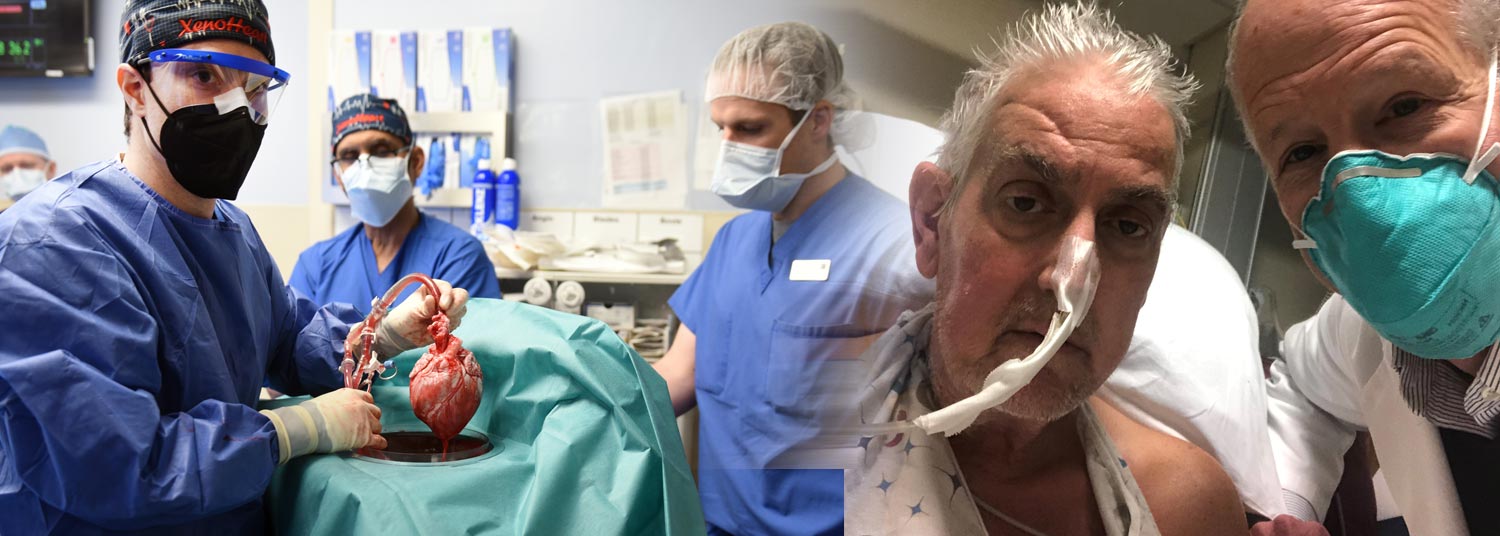
Prior to the transplant, Mr. Bennett was bedridden for eight weeks with a life-threatening arrythmia and was connected to a heart-lung bypass machine, called extracorporeal membrane oxygenation (ECMO), to remain alive. Within days of the transplant, he was weaned from ECMO and participated in active rehabilitation for nearly two months. He visited regularly with family members and sang along to “America the Beautiful” while watching the Super Bowl in February with his physical therapist.
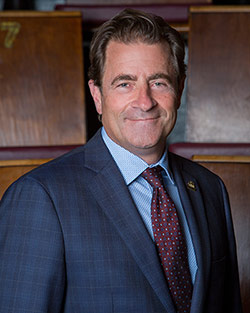 Dr. Mohiuddin, Dr. Griffith, and their colleagues published their initial findings on the transplant last June in the New England Journal of Medicine. Co-authors included: Corbin Goerlich, MD, PhD, Surgical Resident and Doctoral Fellow, Avneesh Singh, PhD, Immunologist and Assistant Professor in Department of Surgery, Aakash Shah, MD, Cardiac Surgery Resident in the Department of Surgery, Alison Grazioli, MD, Assistant Professor of Medicine and Medical Director of the Cardiac Surgery Intensive Care Unit at UMMC, Susie Hong, MD, Cardiologist, Assistant Professor of Medicine, and Susan Joseph, MD, Cardiologist, Associate Professor of Medicine and Section Chief, Advanced Heart Failure and Transplant Team at UMMC.
Dr. Mohiuddin, Dr. Griffith, and their colleagues published their initial findings on the transplant last June in the New England Journal of Medicine. Co-authors included: Corbin Goerlich, MD, PhD, Surgical Resident and Doctoral Fellow, Avneesh Singh, PhD, Immunologist and Assistant Professor in Department of Surgery, Aakash Shah, MD, Cardiac Surgery Resident in the Department of Surgery, Alison Grazioli, MD, Assistant Professor of Medicine and Medical Director of the Cardiac Surgery Intensive Care Unit at UMMC, Susie Hong, MD, Cardiologist, Assistant Professor of Medicine, and Susan Joseph, MD, Cardiologist, Associate Professor of Medicine and Section Chief, Advanced Heart Failure and Transplant Team at UMMC.
“This honor points to the culmination of years of highly complex research to hone the surgical technique and immunosuppressive regimen in non-human primates,” said Mark T. Gladwin, MD, Vice President for Medical Affairs, University of Maryland, Baltimore, and the John Z. and Akiko K. Bowers Distinguished Professor and Dean, University of Maryland School of Medicine. "The historic surgery in Mr. Bennett brought us one step closer to enabling it to one day become the standard of care for patients in need of organ transplants.”
About the University of Maryland School of Medicine
Now in its third century, the University of Maryland School of Medicine was chartered in 1807 as the first public medical school in the United States. It continues today as one of the fastest growing, top-tier biomedical research enterprises in the world -- with 46 academic departments, centers, institutes, and programs, and a faculty of more than 3,000 physicians, scientists, and allied health professionals, including members of the National Academy of Medicine and the National Academy of Sciences, and a distinguished two-time winner of the Albert E. Lasker Award in Medical Research. With an operating budget of more than $1.3 billion, the School of Medicine works closely in partnership with the University of Maryland Medical Center and Medical System to provide research-intensive, academic, and clinically based care for nearly 2 million patients each year. The School of Medicine has nearly $600 million in extramural funding, with most of its academic departments highly ranked among all medical schools in the nation in research funding. As one of the seven professional schools that make up the University of Maryland, Baltimore campus, the School of Medicine has a total population of nearly 9,000 faculty and staff, including 2,500 students, trainees, residents, and fellows. The combined School of Medicine and Medical System (“University of Maryland Medicine”) has an annual budget of over $6 billion and an economic impact of nearly $20 billion on the state and local community. The School of Medicine, which ranks as the 8th highest among public medical schools in research productivity (according to the Association of American Medical Colleges profile) is an innovator in translational medicine, with 606 active patents and 52 start-up companies. In the latest U.S. News & World Report ranking of the Best Medical Schools, published in 2021, the UM School of Medicine is ranked #9 among the 92 public medical schools in the U.S., and in the top 15 percent (#27) of all 192 public and private U.S. medical schools. The School of Medicine works locally, nationally, and globally, with research and treatment facilities in 36 countries around the world. Visit medschool.umaryland.edu
Contact
Deborah Kotz
Senior Director of Media Relations
Office of Public Affairs & Communications
University of Maryland School of Medicine
Email: DKotz@som.umaryland.edu
o: 410-706-4255
c: 410-804-0054
t: @debkotz2
Related stories
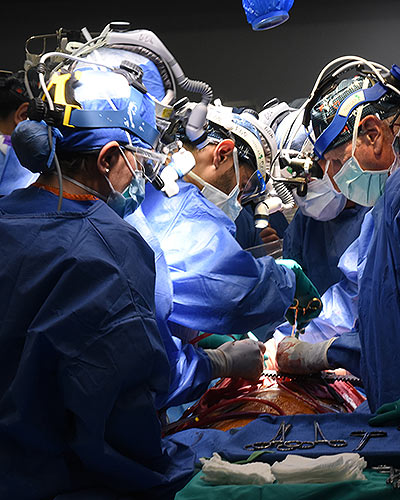
Wednesday, January 08, 2025
Presenting a Path Forward for Future Genetically-Modified Pig Heart Transplants: Lessons Learned from Second Patient
Continuing significant advancements in the field of xenotransplantation, surgeon-scientists from the University of Maryland School of Medicine provided an extensive analysis on the second patient in the world to receive a genetically-modified pig organ. Lawrence Faucette, 58, received a pig heart at the University of Maryland Medical Center in 2023 to treat his end-stage heart failure. He lived for 40 days before choosing to forgo additional treatment after the transplant began to fail due to rejection.
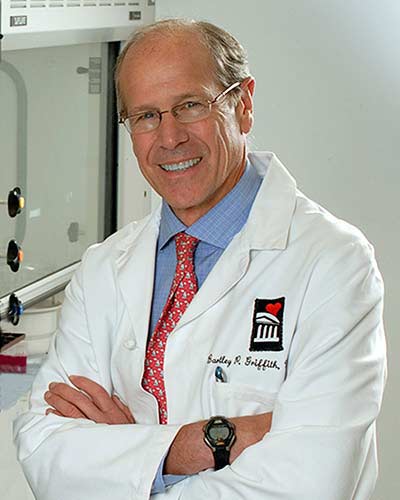
Wednesday, January 31, 2024
Renowned Surgeon Dr. Bartley Griffith Named Vice Chair for Innovation in UM School of Medicine’s Department of Surgery
University of Maryland School of Medicine (UMSOM) Department of Surgery Chair Christine Lau, MD, MBA, along with UMSOM Dean Mark T. Gladwin, MD, announced today the appointment of Bartley P. Griffith, MD, as the Department of Surgery’s first Vice Chair for Innovation. In this role, Dr. Griffith will nurture a culture of innovation, entrepreneurship, and collaboration in the Department, and expand the integration of related sciences into surgical practice. The appointment is effective on February 1.
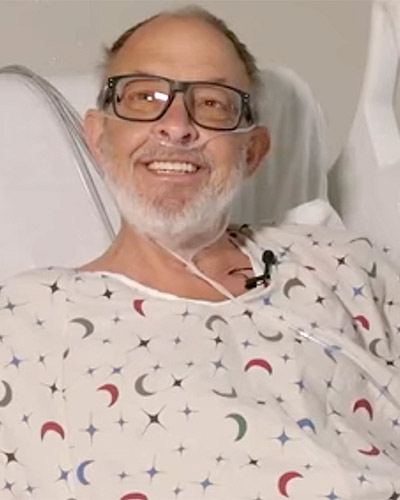
Tuesday, October 31, 2023
In Memoriam: Lawrence Faucette
It is with great sadness that we announce the passing of Lawrence Faucette, the 58-year-old patient with terminal heart disease who received the world’s second genetically-modified pig heart transplant. Mr. Faucette received the transplant on September 20 and lived for nearly six weeks following the surgery.

Friday, September 22, 2023
UM Medicine Faculty-Scientists and Clinicians Perform Second Historic Transplant of Pig Heart into Patient with End-Stage Cardiovascular Disease
A 58-year-old patient with terminal heart disease became the second patient in the world to receive a historic transplant of a genetically-modified pig heart on September 20. He is recovering and communicating with his loved ones. This is only the second time in the world that a genetically modified pig heart has been transplanted into a living patient. Both historic surgeries were performed by University of Maryland School of Medicine (UMSOM) faculty at the University of Maryland Medical Center (UMMC).
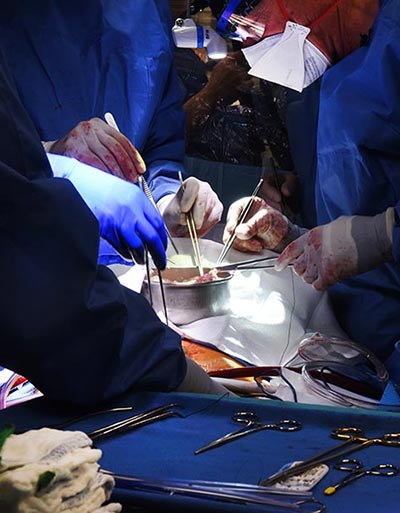
Friday, June 30, 2023
Lessons Learned from World’s First Successful Transplant of Genetically-Modified Pig Heart into Human Patient
A new study published today in the Lancet has revealed the most extensive analysis to date on what led to the eventual heart failure in the world's first successful transplant of a genetically-modified pig heart into a human patient. This groundbreaking procedure was conducted by University of Maryland School of Medicine (UMSOM) physician-scientists back in January 2022 and marked an important milestone for medical science.

Monday, November 14, 2022
Unexpected Electrical Changes Seen in First Successful Transplant of Genetically-Modified Pig Heart
Ten months after transplanting the first genetically-modified pig heart into a human patient, University of Maryland School of Medicine (UMSOM) researchers continue to report on new findings from the landmark transplant. Their latest study demonstrates for the first time that unexpected electrical changes occurred in the pig heart transplanted into the patient David Bennett. The findings were presented at the American Heart Association (AHA) meeting this past weekend.
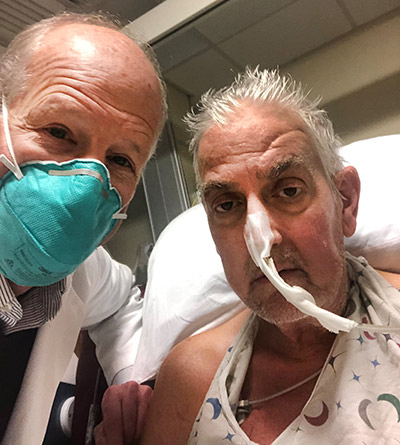
Wednesday, June 22, 2022
University of Maryland School of Medicine Faculty Scientists and Clinicians Publish Findings of World’s First Successful Transplant of Genetically Modified Pig Heart into Human Patient
Six months ago, University of Maryland School of Medicine surgeon-scientists successfully implanted a genetically modified pig heart into a 57 year-old patient with terminal heart disease in a first-of-its-kind surgery. It was considered an early success because the patient lived for two months with a strong functioning heart showing no obvious signs of rejection, according to a new paper published today in the New England Journal of Medicine.

